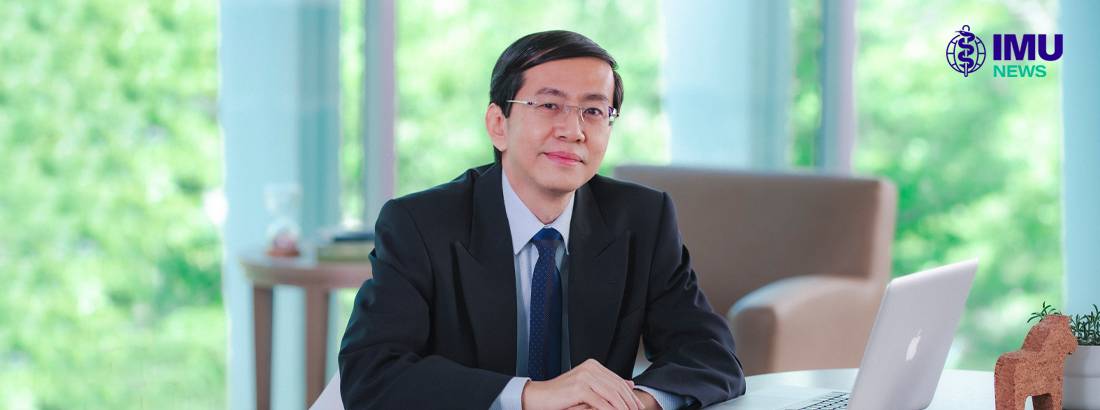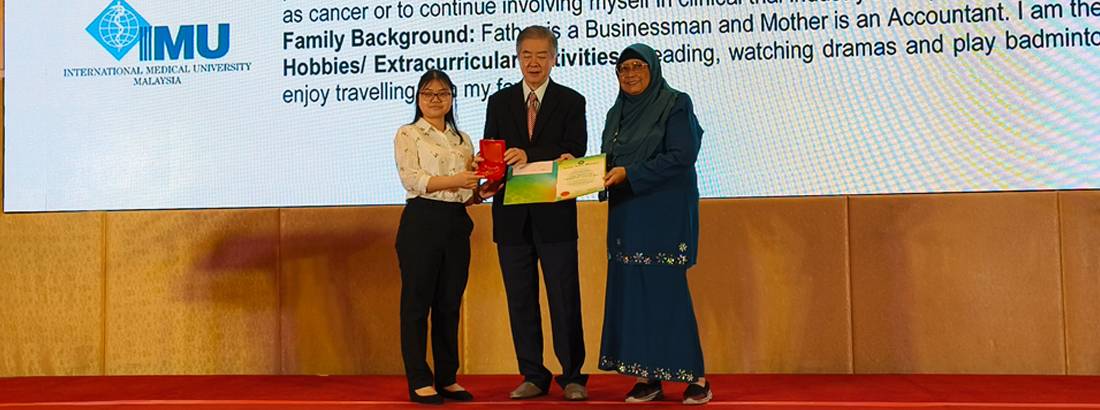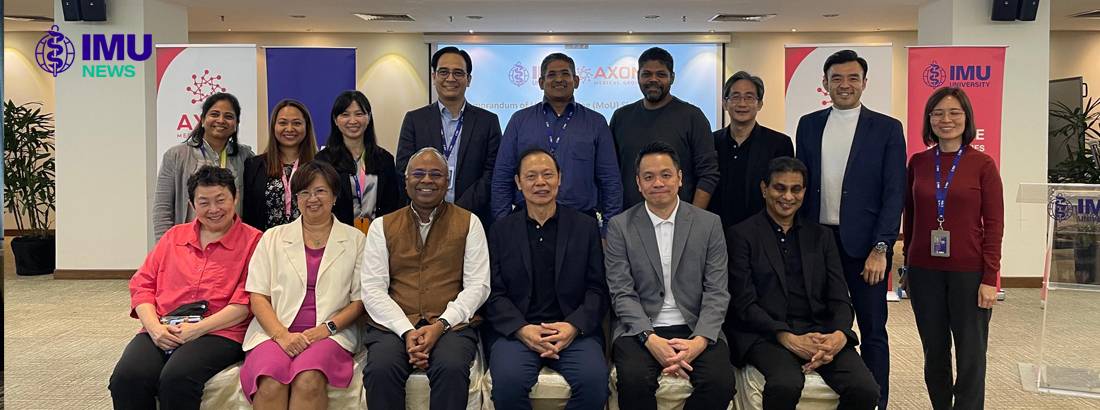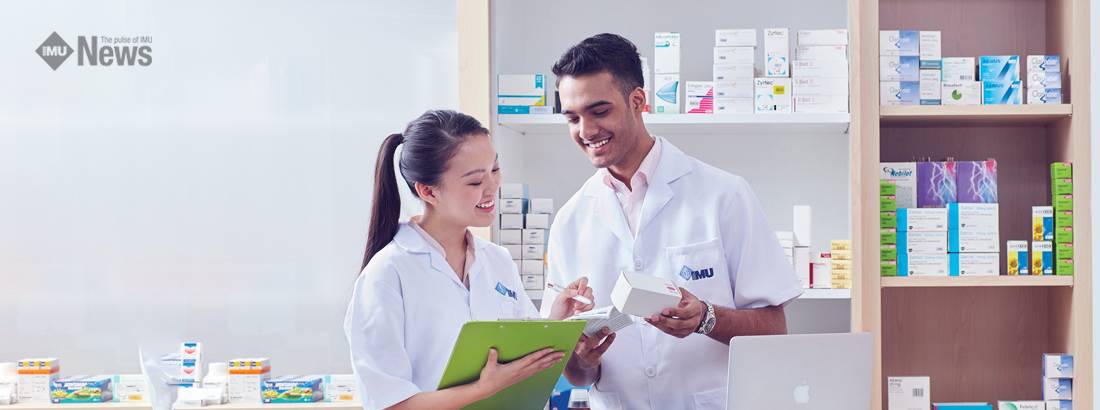A career in pharmacy spans two extremes. On one hand, a pharmacist is at the heart of community, providing accessible healthcare advice, referrals and medication. On the other, the study of pharmacy can lead to research that brings more efficient ways of treatment to patients. Prof Ong Chin Eng, Dean of the IMU School of Pharmacy, tells us more about the studying at the IMU.
As Malaysia’s first and most established private -health-focus higher learning institution, the IMU’s School of Pharmacy (SOP), has been ranked 201-250 in the QS World University Ranking by Subject for two years in a row in 2022 and 2023. In 2024, the rankings improved to 150-200. This ranks it as Malaysia’s top private university in Pharmacy and Pharmacology – a testament to the high quality of its academic programmes.
The School also prides itself in its ability to ensure graduates’ career readiness and future employability by providing up-to-date teaching and learning experiences. In May 2024, it was awarded the Employer’s Choice of University award by Talentbank. “The curriculum incorporates modules such as digital health components to prepare graduates to be work-ready and responsive in a technology-driven healthcare industry,” says Prof Ong Chin Eng, Dean of the SOP.
Learning Innovations
In the last few years, the School has embarked on several innovative teaching and learning approaches including the use of immersive and interactive teaching software. For example, the SOP uses a game-based simulator that allows students to take on the role of a pharmacist and interact with patients. The programme creates different scenarios and settings – such as a community pharmacy or a hospital setting – and features patients with various health conditions, medication histories and backgrounds. “The simulator can even create patients with different personalities,” says Prof Ong. All of these combines to challenge students to give appropriate counsel and recommendations – students learn how to listen, take a medical history, make an evaluation of the patient’s health condition and finally make product or medication recommendations.
The reward? Students who give the right advice will have happy patients who thank them. On the other hand, if the counselling did not hit the mark, the patient will react differently, even getting angry. “It is a very powerful tool to help students hone their interaction skills as pharmacists and the students have found it very useful,” says Prof Ong.
The teaching and learning approaches at the SOP also require students to work collaboratively and brainstorm on practice-based scenarios; to generate, share and discuss ideas; and to provide perspective and solutions to the problems or issues presented to them. “It’s important to foster collaboration within our School. Encouraging ideas is vital for promoting innovation and growth, and to help create a supportive environment that nurtures creativity and collaboration in the students,” adds Prof Ong.
A Better Future through Research
While technology has allowed students to practise their skills in patient-facing situations, it has also made research safer and more efficient. At the SOP, students have access to drug discovery software used to design drug molecules and test them out. “The software programme is able to simulate and visualise how these drug molecules will interact with the body and with this, researchers can figure out which molecules have the potential to be developed,” says Prof Ong.
According to him, at the SOP, students take on different projects and research in a dedicated semester (Semester 7) in their final year. Their involvement in these projects leads to new and exciting ideas, hypothesis identification, planning, data collection, analysis, oral presentation and report writing. “These activities will allow them to resourcefully gather, critically evaluate and synthesise information to make defensible decisions,” says Prof Ong.
An example of the research that is carried out at the IMU includes innovating drug formulation and delivery systems where researchers investigate different, and more efficient, ways a drug can be consumed from tablets and capsules to topical application. “We work on how to formulate better forms of the drug so that when it is eventually given to the patient, the drug is more effective,” explains Prof Ong, adding that this happens when a drug can be better absorbed or is more targeted to the body’s specific needs. The School also has active researchers in other areas including research in natural products, medicinal chemistry, drug discovery, pharmacoeconomic, pharmacology, cancer, evidence-based medicine as well as pharmacy education.
Notably, two of the SOP faculty have been ranked among the top two per cent of scientists in the world – according to a list compiled by researchers affiliated with Stanford University. Involvement of these faculty members in teaching provides students with meaningful and deep learning experiences and enhances their experience of real-world issues. “Our faculty’s research and professional experiences often offer different perspectives, which inspire investigation, trigger debate and invite alternative ways of questioning the material being taught to students. This will help sharpen their critical thinking skills and provide them wholesome educational training during their study,” says Prof Ong.
Global Support and Networks
The journey doesn’t stop at graduation though. With more than 3,000 pharmacy graduates of the Bachelor of Pharmacy (Hons) and Bachelor of Science (Hons) in Pharmaceutical Chemistry programmes, the SOP’s alumni network is strong and active. “We have introduced the Professional Practice Fellow (alumni-mentoring) programme, which focuses on connecting students with established alumni career professionals,” says Prof Ong. This provides students with a unique opportunity to improve transferable skills, strengthen networking skills and promote seamless transition from university to workplace.
SOP students also can gain global experiences through elective or research placements and internships in UK, Australia, New Zealand, France, Japan, Taiwan, Singapore and many other countries. These international educational programmes give students broader perspectives on global opportunities, international work culture and knowledge as well as expand networking opportunities.
“Our well-established industrial partnerships have also enabled us to come up with comprehensive workplace-based training programmes for our students,” adds Prof Ong. Through these efforts, Pharmacy students are able to undergo comprehensive placement training at community, hospital and industry settings. They also have opportunities to undertake their elective and research postings at both local and overseas institutions. Similarly, Pharmaceutical Chemistry students spend a full semester in internships at well-established partners, both locally and overseas.
A Wish for Students
For Prof Ong, his vision for the School is for it to be a vibrant place that allows students to shine in their various capacities. Besides the knowledge and skills that they need, he hopes that they will build their critical thinking skills, their ethical compass and embrace lifelong learning.
“We have designed a curriculum to enable students to acquire and inculcate these attributes in a progressive manner. My wish for all students is that at the point of graduation, they would have equipped themselves with all that they need to be successful,” he says, adding: “Not just in their careers, but in all areas of their lives.”
About Prof Ong
Prof Ong is a pharmacist by profession, having graduated from the country’s oldest and first pharmacy school – Universiti Sains Malaysia; and a pharmacologist by training with a PhD from Flinders University, Australia.
He was always interested in healthcare and his passion was partly driven by his experience taking care of ailing parents. “It showed me how important health is,” he says. Having then been introduced to research in drug discovery and development in his undergraduate days, he realised how research can have a positive impact on society.
His lecturers also inspired him with their compassion and creative teaching methods and he has carried this with him to the SOP where he hopes to have also created the same learning experience for his students.






No approved comments.